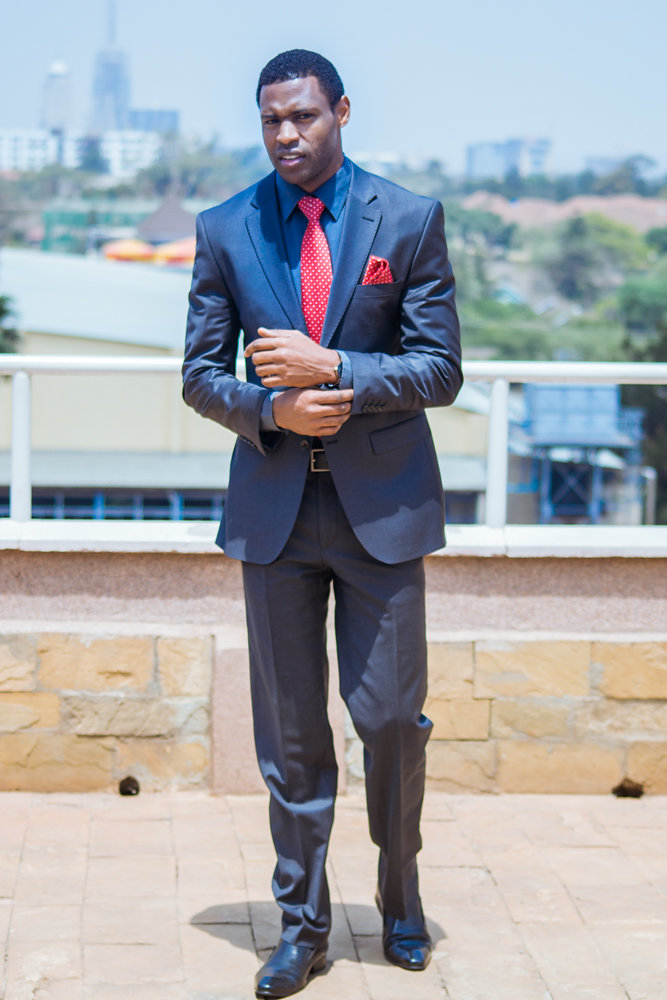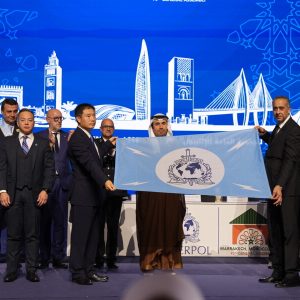
By:Muli Musyoka, Chief Trichologist & CEO,Hairhub The Trichology Centre
Most scalp conditions lead to hair loss or some type of skin rash on which some can be said to be hereditary. Malnutrition or infection can also cause scalp conditions.
The treatment and your outlook depend on the condition that’s causing the scalp problems. However, common causes of the scalp include bacterial infection of hair follicles (folliculitis), infestation of head lice (pediculosis capitis), and fungal infection of scalp ringworm (tinea capitis).Itching and excessive flaking of the scalp is seen with both dandruff (seborrheic dermatitis) and psoriasis among other causes.

To understand better how this can be treated or prevented, a pioneer hair restoration clinic in Sub-Saharan Africa which is doing a wonderful job to restore your smile and beauty back, answered some questions about them, their work and what their clients should expect. Below are the questions and answers.
- Tell us what is the Hairhub Trichology? And what prompted them to start hair hub?
Hairhub Trichology Centre is a pioneer hair restoration clinic in Sub-Saharan Africa situated in Nairobi Kenya.
The Trichology Centre is dedicated to providing quality services as well as taking care of hair and scalp conditions in a unique approach and with the most innovative advancements in hair restoration and other Trichological services.
We are the first institution in East Africa to reverse hair loss with hair transplant, Platelet rich plasma (PRP), Stem cells therapy as well as addressing dietary deficiencies that trigger hair loss.
Every patient goes through a consultation and analysis session then we formulate the best treatment plans to each patient’s specific needs. Every patient who attends the Hair Hub Trichology Centre is seen by a Trichologist and not a salesperson.
Patients are given independent advice as to their options; the decision to proceed with any form of therapy or even transplant surgery is fully taken by the patient.
We have a surgical led team of hair transplant surgeons and technicians who work together with the trichologists to ensure effective therapy delivery after Trichological diagnosis.
Our multi-disciplinary approach coupled with vast experience in both hair and hair care products by our lead Trichologist gives Hair hub a unique proposition in treating patients with any form of hair loss and scalp conditions.

- Where are your clients mostly from?
70% of our patients are Kenyans living in Kenya and the rest are patients from the East African region, West Africa and Europe.
We also serve a significant number of Kenyans who live abroad and only come home once a year.
- What is the main cause of men losing hair in the current society and why men? And what’s the solution?
At our center we serve all sorts of patients from young kids, women and men. There are quite a number of hair loss causes.
However, what we see often are stress related, genetic forms, self-inflicted hair loss from strenuous hair styles mostly by women, as well as deficiency related forms of hair loss.
Men mostly present with genetic hair loss however, we also see other conditions like pseudo folliculitis where African men suffer bumps after shaving which in some cases, turn infectious.
- What sets them apart from other trichologists offering solutions to the same issues with hair?
The team at Hairhub has remained as market leaders due to the fact that we are constantly learning, doing research, travelling to conferences and the system we have put in place to allow continuous improvement.
We are members in several global hair restoration organizations, and this has helped us stay ahead of the rest.
- What are some of the challenges they faced when they started and also some challenges they still face?
Of course, at the beginning we face a believability challenge. People did not want to believe that things like reversing hair loss were actually happening in Nairobi. We also lacked the proper equipment to execute procedures properly.
The other challenge was the fact that patients found our services expensive and they had nowhere to compare locally so at some point they thought we were reaping them off.
Hair restoration remains an expensive affair and even after 7 years of experience and operation, patients still want to bargain.
- Take us briefly on the procedure?
In hair loss treatment the most important thing is to get an accurate diagnosis. Establish what is causing the loss of hair or scalp condition, establish extent of damage then formulate the best therapy.
We have a variety of treatments from simple dietary supplementation to fix deficiencies, use of growth factors, as well as hair grafting for permanently lost follicles.
- How do they do research to make sure their products are safe for use (do they experiment on people before releasing them to the market or in other words what research do, they mean)?
We are in constant linkage with world forums that release latest studies on hair and scalp condition and their treatment.
We also perform our own research with case studies that we undertake in our clinic and mostly with cases that are unique to our type of hair and environmental factors.
- Tell us more on hair transplant and what specific cases would a client have for them to recommend the transplant?
Hair transplant is a procedure we give to patients who’ve permanently lost hair follicles, and their scalp is in a stable state.
It is a tissue grafting exercise whereby hair follicles from one part of the scalp are grafted into another part of the scalp or any other part of the body that may require hair restoration.
This may include beard, eyebrows, hairline lowering/redesigning or simply covering bald patches as a result of genetic hair loss or mechanical hair loss due to braiding cases or chemical burns.
Hair transplant is done under local anesthesia, the patient is fully awake and aware of what is happening, but the process is painless.
This is a very intricate and labor-intensive activity that entails securing follicles from one part of the body known as the donor site into the area that the patient requires more hair known as the recipient site.
- Are there any known side effects for their methods?
As long the procedure is handled professionally and in a clean environment with sterile tools then no side effects will be anticipated.
However, some patients who are susceptible to scarring may get tiny scarring spots on the donor site that would be disguised by hair growth.
- What advice would you say to a person who has a similar case?
Never treat hair loss without a proper diagnosis otherwise you’d be shooting in the dark. On the issue of scarring, this is a very rare situation with the system of hair transplant we use in our clinic and it can be corrected so no need to panic
**special cases would a client have
We have seen cases in the past that a patient came in too late and little, if anything, would have been done to rescue their hair. We also have some autoimmune response conditions that cause total and permanent loss of hair follicles and this would be irreversible.
- And it’s also good to ask about how many clients they get maybe monthly or annually seeking their services (it’s serves as proof that their methods works )?
We have been in practice for the last 7 years and we have seen well over 15000 conditions at the clinic with an amazing level of success.
Most of our patients have been sent to us by previous patients that we worked on.
For cancer patients it is possible to get their hair back simply because their follicles are still intact.
Cancer treatment stops hair stem cells multiplication. However, once one is done with treatment, they should see hair regrowth and if need be, then boosting therapies can be done to ensure full hair growth is realized
- So far are they on the right track in realizing their initial goal?
As HairHub we are well on track in line with our short-, medium- and long-term goals.
- What legacy they want to leave behind (what will they want to be remembered for in the long run)?
To be the most trusted Hair Restoration Centre in Africa that professionally and ethically provided consumer centric state of the art solutions to hair and scalp conditions.
- What next for Hairhub Trichology Centre
We are focused on expansion to the greater African region emerging markets.
- Directors Profile
Muli Musyoka I.A.T is an entrepreneur and a holistic hair specialist, the first I.A.T Certified Trichologist in East and Central Africa.
A member of the International Association of Trichologists, founder and Managing Director at Hair Hub Trichology Centre.
He has worked with International hair care brands for over 12 years, in which he has been heavily involved in Afro hair product development and professional salons training.
Rising from a village boy, a garbage collector and later second hand clothes seller, Muli now privately runs a hair restoration clinic; Hair Hub Trichology Centre in Nairobi the first of it’s kind in sub-Saharan Africa.
He is the first hair specialist to introduce hair transplant in Kenya. The clinic focuses purely on diagnosing and treating hair loss through new innovations like Laser hair therapy, Platelet Rich Plasma therapies (growth factors), stem cells and the latest way of hair transplantation- FUE.
Muli has gained a lot of exposure in the hair industry having given lectures in world class hair forums in Canada, Trinidad and Tobago, Dubai, Australia, South Africa, USA, Cameroon, Ethiopia, and the 5 East African countries.

He trained as a hairdresser back in 2006 and earned a UK Diploma in hairdressing. He enrolled as a trichology student in 2009 for a 2 years training program with the International Association of Trichologists (I.A.T) in Sydney.
Muli did marketing training in South Africa in 2012 and Strategy development at London School of economics in 2017.
He has made an immense contribution into the hairdressing industry in East and Central Africa over the last 7 years, having trained over 16’000 hairdressers in advanced hair care seminars.

In 2015 Muli launched The Afro Hair Awards (http://theafrohairawards.co.ke/) which has emerged as the biggest hair awards in East Africa. Over 20,000 stylists have been directly reached by this awards scheme in the last 6 years and the future looks very promising.
This award ceremony is uniquely geared towards raising the hair industry standard, instilling professionalism and creating a strong bond amongst all industry players through unlimited networking, education, and creation of growth opportunities to all sectors of the Hair industry.
In 2016 Muli also launched ‘The Hair Raising Conference’ (http://hairraisingconference.com/) an event that has grown in leaps and bounds.
The focus here is to train stylists and salon owners on branding, how to grow sustainable brands, business acumen and the latest innovation and studies in the hair industry.
In 5 years The Hair Raising Conference has reached thousands of stylists with speakers from as far as Australia, USA as well as top achievers in Kenya.

HAIRHub Trichologists working in a Theatre
Muli was nominated as the 7th among 40 most polished men to watch in Kenya in the 2014 top 40 under 40 men nominations.
Identified as one of the Young Rich entrepreneurs in Kenya in 2015 Muli is known for giving motivational talks in different forums where he uses his story to inspire and motivate young entrepreneurs, college students and school going kids.
In 2011 he worked with the Kenyan government’s Directorate of Industrial Training under the ministry of labor to develop a good training scheme for hair and beauty discipline. Muli’s efforts are geared towards employing standards and ethics regulations in the hair industry in East Africa.
His focus is to avail the remedy and therapies for different types of trichological conditions in Africa as well drive innovativeness and entrepreneurship mindset in young people across Africa.
- Parting shot
- Muli believes that we were made for greatness but we will never realize that greatness until we conceive it in our minds.







Hi hairhub. Do you train people who want to become trichologists? If not would you recommend any reputable training college?